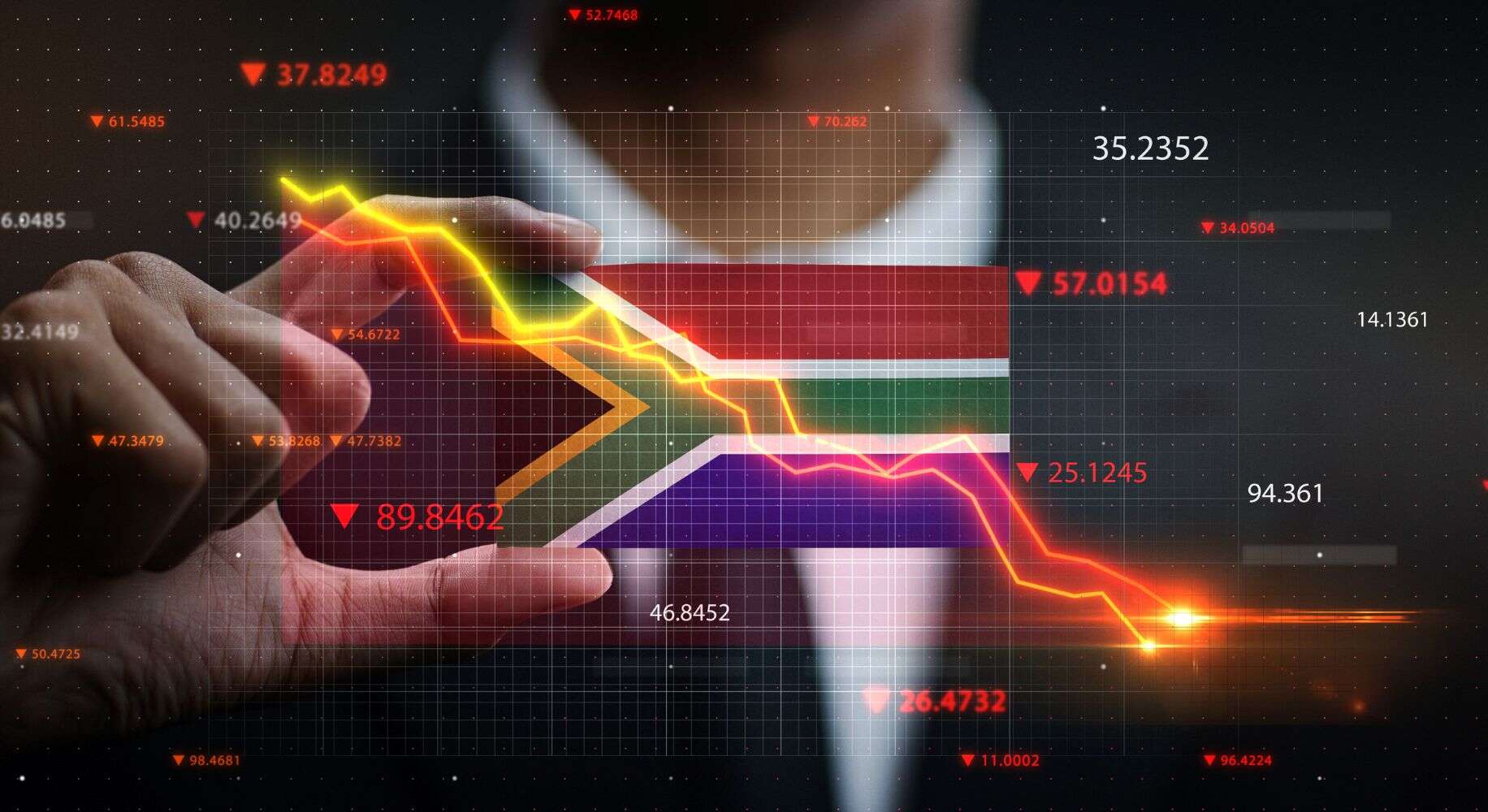Between fears of how the economy will react to the DA-ANC tensions and the US’ new bill and tariffs, inflation expectations decreased.
Politics dominated the economic news this week, with local and global politics taking centre stage, while a South African survey on inflation expectations had good news for consumers from all the groups surveyed.
Lisette IJssel de Schepper, chief economist at the Bureau for Economic Research (BER) points out that while tensions persisted in South Africa between the DA and ANC, international headlines were dominated by the passage of the ‘Big Beautiful Bill’ in the US and the fast-approaching US tariff deadline.
Bianca Botes, director at Citadel Global, says gold gained, while oil slipped as fiscal and trade risks weigh on commodities. “Gold advanced to around $3,330/ounce, maintaining a solid position due to lingering uncertainty, even in an improved-sentiment environment.
“The US Tax-and-Spending bill’s anticipated $3.3 trillion-plus impact on the deficit, along with the risk of new tariffs, bolstered gold’s appeal.”
ALSO READ: Policy Uncertainty Index drops slightly while global and local uncertainty remain
Oil markets and the rand trending lower
She says oil markets, on the other hand, are trending lower, with Brent Crude falling to approximately $68.50/barrel. “Market sentiment was shaped by speculation that the expanded Organization of the Petroleum Exporting Countries (OPEC+) may increase output at its upcoming meeting, adding to downward pressure.
“Nonetheless, medium-term forecasts remain positive, with some analysts expecting higher average prices in 2025 due to persistent supply constraints outside OPEC and steady demand growth. However, geopolitical factors remain in play, particularly US sanctions on Iran, which added a layer of uncertainty to the global supply picture.”
The rand kept surprising economists, strengthening to around R17.50/$, its strongest level since late 2024, supported by a declining dollar, elevated gold prices and improving local political sentiment. “While the rally has been encouraging, the rand’s outlook remains sensitive to both domestic developments and broader commodity market dynamics.”
Busisiwe Nkonki and Isaac Matshego, economists at the Nedbank Group Economic Unit, say the rand was buoyed by higher global risk appetite this week, firming to its strongest level since the second week of November, trading at R17.60 on Friday afternoon.
ALSO READ: Inflation expectations almost at four-year low
Inflation expectations looking good
De Schepper says according to the BER’s inflation expectations survey, expectations declined across the board in the second quarter, with the inflation expectations of all three social groups, (businesspeople, trade union representatives and analysts) decreasing, with the downward adjustment extending across the forecast horizon.
On average, the respondents expect that headline consumer inflation will be 3.9% during 2025, then rise gradually to 4.3% in 2026 and 4.5% in 2027. The inflation expectations of households for the next 12 months decreased to 5.4%, from 5.7% before. This is the lowest rate since the fourth quarter of 2021.
“The moderation in expectations not only firms up the likelihood of a 25 basis points rate cut in July but should also support the South African Reserve Bank’s (Sarb) desire to shift to a lower inflation target.
Mamello Matikinca-Ngwenya, Siphamandla Mkhwanazi, Thanda Sithole and Koketso Mano, economists at FNB, say the household experience of inflation is determined by spending patterns. “While lower-income households will be more affected by food, higher-income households will be more sensitive to transport and insurance costs. That said, higher household expectations reflect the nuances beyond headline inflation readings.
“This is a dynamic that will also affect how quickly the Sarb is able to efficiently and sustainably achieve a lower inflation objective. High administered inflation may need to be compensated for by further non-admin core disinflation, which suggests less monetary policy easing. That said, the efficacy gains from a credible central bank and effective communication cannot be overlooked.”
ALSO READ: Absa PMI increases but in contractionary territory for eighth consecutive month
PMIs a mixed bag again
The Absa Purchasing Managers’ Index (PMI) increased by 5.4 points in June to reach 48.5, the second-highest reading this year and the largest monthly increase since September 2024, although it remains below the neutral 50 points.
The S&P Global PMI, on the other hand, decreased by 0.7 points to 50.1 in June. While it remains in expansionary terrain, the underlying data showed output and new business declines, De Schepper points out.
Furthermore, she says, the forward-looking confidence index slipped to its lowest level in four years. “The divergence between this index and the Absa PMI could reflect survey timing: the Absa survey was conducted after the end of the 12-day war between Isreal and Iran and amid a lull in global tariff news, while the S&P survey was fielded during the final two weeks of the month and likely captured more of the lingering uncertainty.”
Matikinca-Ngwenya, Mkhwanazi, Sithole and Mano say the good news in the Absa PMI is that new sales orders surged by 7.8 points, driven mainly by domestic demand. “Despite stronger demand, production declined slightly, and supplier delivery times lengthened, likely due to increased activity rather than supply issues.”
ALSO READ: New vehicle sales finish first half of 2025 on a noteworthy high
New car sales keep increasing
Naamsa reported that new vehicle sales increased by 18.7%, slightly down from 22% in May, with sales increasing for a fourth consecutive quarter. Exports also bounced back with 7.9% growth from a 14.6% contraction in May.
Nkonki and Matshego say new vehicle sales surprised on the upside in June, much higher than their forecast of 14.3%. They noted that imported models outperformed those produced by local OEM’s, reflecting heightened price sensitivity among consumers given still-tight household budgets.
“The broader recovery in vehicle sales is supported by subdued inflation, better credit conditions and the 100-bps drop in interest rates. However, the outlook is tempered by soft business confidence and lingering uncertainty around trade policy. Still, the industry should benefit from a more supportive macroeconomic backdrop heading into the second half of the year.”
